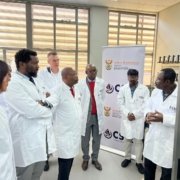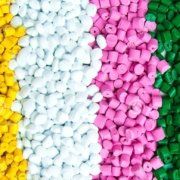Tax on single-use plastics is not the best solution
During his 2019 Budget Speech, finance minister Tito Mboweni announced an update to existing environmental taxes, including a levy on single-use plastics. While the intention may be good, not all of these taxes are achieving their intended environmental objectives. Taxing single-use plastics is not the best solution to the problem of plastic pollution.
A good example of failed objectives is the plastic bag levy that was introduced in 2003. This tax on plastic shopping bags has had little impact on consumer behaviour since it was announced. The Department of Environmental Affairs has acknowledged to the South African Parliament that citizens have continued to use plastic bags despite quadrupling the levy between 2003 and 2018.
This levy has not been ring-fenced for the sole purpose of protecting the environment from plastic pollution. Almost R2-billion has been raised through the plastic bag levy, yet little has been achieved in terms of environmental clean-ups and pollution eradication. A tax on single-use plastics will probably have similar outcomes.
Tax on single-use plastics will not curb pollution
The South African government is currently investigating the opportunity to tax single-use plastic products such as straws, beverage cups, food containers and packaging. However, these taxes may not discourage consumers from purchasing single-use plastics, let alone littering or dumping them after they have used been used.
Plastic SA is committed to tackling plastic pollution and we support any effort to remove plastic waste from the environment. We will work with the government and our industry stakeholders to promote the reuse and recycling of plastic products. It is unacceptable that nearly 8 million tonnes of plastic are currently being washed into the world’s oceans every year.
A tax on single-use plastics will not encourage people to recycle their waste; education and awareness-raising campaigns will. South Africans are becoming more aware of the problem of plastic pollution in the environment, so they are willing to recycle more. The government can help the waste management industry to improve its infrastructure so that more waste can be collected and recycled.
This tax will drive inflation
A tax on single-use plastics is an emotional response to a global concern. However, it will have a significant impact on the economy rather than the environment. This tax is likely to increase inflation as manufacturers and retailers increase their prices to cover the costs of the tax. This will put added pressure on an industry that employs over 60 000 people.
The real solution lies in developing innovative and environmentally-friendly plastic products. Rather than taxing the industry and the consumer, the national government can work with plastics producers to help develop these innovative products. Government funding will go a long way to helping the plastics industry develop new, eco-friendly plastic products.
Plastics SA is determined to find a solution to problematic plastics usage and disposal. We are currently developing an intricate plan to deal with single-use plastics that is aligned with international standards and takes into consideration South Africa’s environmental, socio-political and economic needs.
___
Plastics SA represents all sectors of the South African plastics industry. Together with our associations, we play an active role in the growth and development of the industry and strive to address plastics related issues, influence role-players and make plastics the material of choice.
Plastics SA has been mandated to ensure a vibrant and sustainable plastics industry in South Africa. The plastics sector is uniquely placed to meet the needs of a sustainable society and to deliver solutions to many challenges such as recycling, climate change, water scarcity, resource usage and energy recovery.
For more news, updates and information on the South African plastics industry, follow us on Facebook, Twitter, Instagram, YouTube, LinkedIn and Pinterest.









